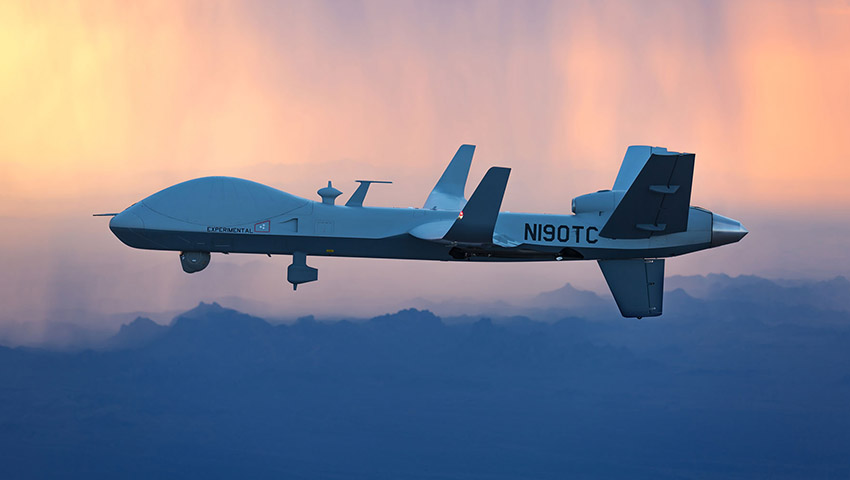The department has defended its move to reallocate funding from the AIR 7003 project to invest in enhanced cyber capability.
Defence industry stakeholders and analysts have criticised the Commonwealth government’s decision to cancel the AIR 7003 Phase 1 project – a $1.3 billion program to deliver General Atomics-built MQ-9B SkyGuardian armed medium altitude long endurance remotely piloted aircraft systems to the Royal Australian Air Force.
AIR 7003 Phase 1, which formed part of the Integrated Investment Program (IIP), aimed to deliver persistent airborne intelligence, surveillance, reconnaissance, electronic warfare and precision strike capability for the land and littoral environments.
A Defence spokesperson told Defence Connect that the SkyGuardian project was axed following advice from Defence officials, with government deciding to reallocate funds for Project REDSPICE (Resilience, Effects, Defence, Space, Intelligence, Cyber, and Enablers) – a $9.9 billion investment over the next decade in the Australian Signals Directorate (ASD).
The department has now issued a statement defending the move, claiming the REDSPICE investment aligns with measures outlined in the 2020 Defence Strategic Update and 2020 Force Structure Plan.
“These documents outlined the requirement for force structure and capability adjustments focused on regional contingencies, and which were flexible enough to respond to grey-zone challenges that threaten our national interests – including the possibility of high-intensity conflict and domestic crises,” a spokesperson said.
“This includes developing capabilities such as longer-range strike weapons, cyber capabilities and area denial systems to hold adversary forces further from Australia and protect infrastructure at risk.”
Defence pointed to the changing nature of the modern warfare environment, noting cyber attacks are “now commonly preceding or deployed in concert with other forms of military intervention”.
“Defence’s REDSPICE project delivers a real increase in the potency and resilience of the Australian Signal Directorate to block sophisticated cyber attacks against our critical infrastructure, and strike back if needed,” the spokesperson added.
“It will also ensure Australia’s cyber and intelligence capabilities remain resilient to attack.”
The department went on to acknowledge the “excellent capability” offered by the MQ-9B SkyGuardian platform, but reiterated the project needed to be scrapped to “optimise the ADF force structure for the current strategic environment”.
Defence noted its continued commitment in a range of other strike and ISR capabilities, including the MQ-4C Triton and MC-55A Peregrine aircraft, Apache helicopters, and MQ28-A Ghost Bat.
“Defence regularly adjusts and reprioritises the Integrated Investment Program to accommodate new and emerging government priorities,” the spokesperson concluded.
[Related: Australia’s MQ-9B SkyGuardian project axed ]









